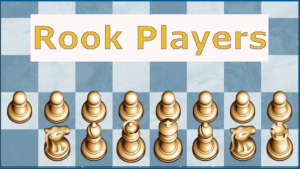A. D. Petroff
|
Ivan Alexandrovich Butrimov, who was born in St. Petersburg March 7, 1782, produced Russia's first chess book, "Chess Play," in 1821.  Interesting enough is that the book employed algebraic notation very much like we use today. The frontispiece shows the board and below that is a page from the book showing the notation itself:  
Butrimov, who died on Jan. 31, 1851, was married to the sister of one D.O. Baranov, a fellow senator at St. Petersburg. While I haven't been able to ascertain whether this D.O. Baranov is also the Russian poet of the same name who lived during that same time, we do know Baranov was acquainted with Alexander Pushkin. Baranov was one of the strongest chess players in St. Petersburg at that time. Another fellow senator was Ivan Alekseyevich Sokolov, whose grandson, Alexander Dmitrievich Petroff (Petrov), would grow into the greatest Russian player until Tschigorin. Petroff learned chess from his father at age 4. By age 7, he could play against his grandfather at Rook-odds but soon they were playing even. When Petroff was 10, his family moved from the Tver Oblast to St. Petersburg where there was a large English social club involved in chess of which Baranov was not just a member, but the best chess player. When Petroff was 15, he beat Baranov in a short match, +4-1 [this match is unsubstantiated]. Petroff also played a match with another leading St. Petersburg player, A. D. Kopev or Kopyev. (Alexander Danilovichem Kopev is a name given by one source - however, there was a writer named Aleksei Danilovich Kopyev living at that time in Nikolskoye, about 25 miles south of St. Petersburg, who was active in St. Petersburg society. His name fits into the literary circles associated with Petroff) and beat him +4-2=1. In 1924 Petroff published his chess manual, "The Game of Chess Systemized with the Addition of Philidor's Games with Accompanying Notes." Below is the title page to his book-
 The notation in Petroff's book was also algebraic: 
However, his graphics left something to be desired:  Petroff was not only the greatest Russian player of his time, he was also a highly considered analyst and problemist. His followers consisted of such highly regarded players as Carl Jaenisch, the Princely brothers Urusoff, and Ilya Schumoff. Petroff moved to Warsaw around 1840. Between 1850 and 1859, Petroff visited Vienna and Paris. He returned to Paris in 1863 where he met with Paul Morphy on at least three occasions. Though they aren't recorded as having played any chess, it was no fault of Petroff who had on many occasions expressed intense desire to test himself against the American master. In 1859 Prince Sergie Urusoff wrote to Morphy trying to persuade him to visit Russia and to play Petroff. Morphy, of course, couldn't accommodate him, but Petroff created a chess problem with White pieces arranged in the shape of "M" in Morphy's honor and sent time to the "Chess Monthly." It was published in the July 1858 issue.
  
Petroff died in Warsaw on April 22, 1867. Below are two articles written about the "Northern Philidor."
"The Chess Player's Magazine"
Petroff had a running series of 200 games against his friend, F. Alexander Hoffmann, a teacher. Petroff's Immortal, also against Hoffmann, was played in Warsaw in 1844: m
"The Chess-Monthly" 1880 edited by L. Hoffer and J.H. Zukertort RECOLLECTIONS OF PETROFF. By D. M. Salter. On a blazing afternoon in the summer of 1863 the inhabitants of Dieppe were flocking to the port to assist at the blessing of the fishing boats and nets by the bishop of the diocese. But attracted by the elegance and tastefulness of a charming caff, we entered there instead of attending the ceremonial, and found it temporarily deserted by all save two occupants. One of them was, as we learned afterwards, the daughter of the house left in charge. She was a maiden of some eighteen summers, remarkable for strangeness of appearance. She was rather tall, and had abundant black hair brushed clean off from her forehead and hanging down her supple back in an enormous plaited tail, so long that it all but reached her pretty feet and ankles. Her face was oval, delicately chiseled, her eyes were almond-shaped, lustrous, and dark, her nose was well cut and rather long, her mouth and teeth were perfect, and the complexion was a clear olive. Altogether she was such a vision, as one rarely sees and never forgets. While she was arranging on a tray tho coffee in its white cup with the inseparable small glass of brandy and the five lumps of sugar in a little dish, we observed some Chess apparatus on a shelf, and on our asking, if there were any tolerable players in Dieppe, she replied, "S'il y en a, mais oui, mon Dieu, il y en a Un et il est d'unc telle force que personne ne pourrait lutter contre lui. Il t'ecrasera comme une puce," sharply snapping between a delicious finger and thumb an imaginary insect, and then waving her tawny hand dramatically in the direction of the third occupant of the cafe", she exclaimed, "Le voila." In an undertone we then arranged that she should go as our ambassadress to say that a member of a London Chess Club requested the honour of playing a game of Chess with him. While she is gone on her mission let us take the opportunity of saying who and what "he" was. Our reader has already guessed that it was Petroff. He was rather a tall man, with a broad and well-developed forehead, large grey eyes and well-shaped features. His head was snowy in the early winter of his age, and goodness and sagacity dwelt on his face, so that though at the time we did not know bis name, it was easy to perceive that he was somehow a man of mark. Let us present you with a brief biography of him. The Right Honourable Alexander Petroff was born at St. Petersburg while the Reign of Terror was raging in Paris. His maternal grandfather, who was a Senator, placed him, when a youth, in the Russian Civil Service, where he rose rapidly in grade. In 1841, at the request of the Viceroy of Poland, Petroff was made an Under-Secretary of State, and he filled many important offices at Warsaw. Finally he was promoted to the dignity of a Senator of the Empire. On his private card he described himself as " Conseiller d'Etat," ( A title in the Russian service, which may mean nothing or very much; e.g.: a contractor may get it for robbing the Treasury in the accustomed way, while its second class carries with it already the distinction of excellency, and the first is coveted by Cabinet Ministers.) which we may venture to translate as Privy Councillor, and that is why we have termed him the Right Honourable. So much for his official career. It will be remembered that Paul Morphy learnt Chess from his uncle, Ernest Morphy. Petroff learnt it from his grandfather, the Senator. Happily these men, who possessed natural aptitude for the game, had their attention turned to it when they were young. Else probably they had never played. They are samples of determinism. What productions are we and slaves of antecedents and environments! How wonderful does Nature seem to us, when we reflect that this Chess capacity was not only potential, but was necessary and latent in the Fiery Mist, the Mother of the Globe! That Petroff impoverished the world by his death a few years since will be fresh in the memory of all (He died in Nov., 1867) Limits permit us to add nothing more except that our ambassadress was successful in her mission, and that we played more than two hundred games with him at the odds of Pawn and two moves. All who knew him, loved him living and remember him dead with affectionate regret. |



